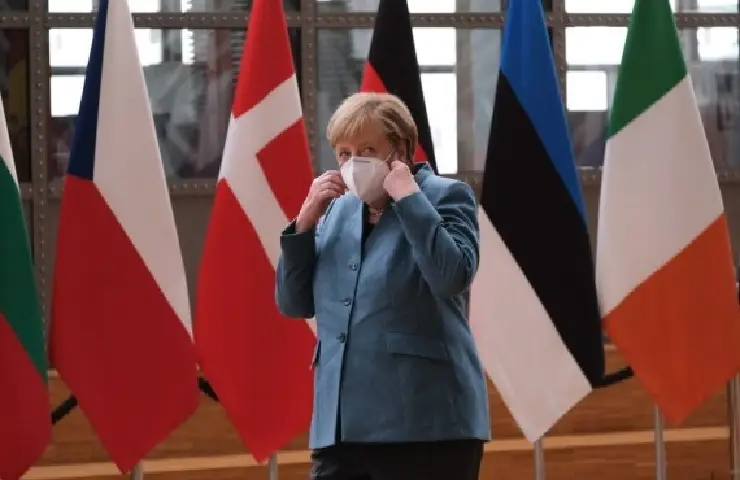German Chancellor Angela Merkel has articulated Poland's worry over the pushing of West Asian refugees by Belarus into its territory and that of neighbouring European Union (EU) countries.
On her last foreign visit to Poland before she steps down as the Chancellor of Germany, Merkel said that Belarus is pushing refugees through its borders to put pressure on Poland and the EU.
At a joint press conference with Polish President Mateusz Morawiecki in Warsaw, she said, "on the eastern borders we see hybrid, cyber and conventional attacks… we see pressure with the use of migrants on Lithuania, Poland and Latvia. We must give humanitarian aid but we must protect the borders of the EU".
Belarus, which lies in north-east Europe, has opened up its borders to allow refugees from Iraq, Afghanistan, Syria and Africa to enter its immediate neighbours—Poland, Lithuania and Latvia. For many refugees, their final destination is western Europe.
With the countries ramping up border security and erecting fences along their border with Belarus, many migrants are trapped between Belarus and Polish borders, further raising fears of a humanitarian crisis.
Belarus' neighbours, the EU and even countries like Germany feel that Belarus is mounting pressure on the EU after the latter levied sanctions on it for its authoritarian behaviour. Many call Belarus ‘Europe's last dictatorship.’
After having absorbed millions of refugees over the last many years, the EU does not want to take in more people due to rising social tensions. The increasing number of migrants has led to strengthening of right wing parties as well as fears that the European way of living will be altered.
Germany's far-right party, Alternative for Germany (AfG) has already said that the refugees should be rehabilitated and supported in their regions.
The EU has come round to the view that the Afghan refugees have to be provided humanitarian aid in their own region. European nations are speaking with Iran and Pakistan to ensure that Afghans are rehabilitated close to their war-torn borders.
The crisis in Afghanistan has spawned a migration crisis as war-weary Afghans are fleeing the Taliban regime. European nations fret that this has unleashed a second wave of refugees from the Islamic world after the first wave of migrants fled Syria and Iraq in 2015.




















